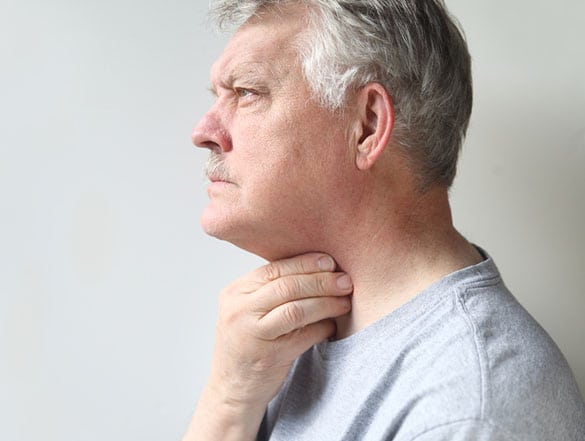
Thyroid nodules are one the most prevalent medical conditions.
Fortunately, thyroid nodules are rarely cancerous. Of course, any time such an abnormality is detected, a physician should be consulted.
It is important to understand some of the components of thyroid nodules that should be considered if thyroid nodules are suspected or present.
What Causes Thyroid Nodules?
There are many different forms of thyroid nodules, and the cause is usually correlated with the sub-type. One type of thyroid nodule is the overgrowth of normal thyroid tissue, or adenoma, but the cause of these isn’t well understood. Another type of nodule is a thyroid cyst. These are often the result of adenomas breaking down and forming pockets of fluid.
Inflamed thyroid, or thyroiditis, is often caused by one of two autoimmune diseases. These are Hashimoto’s and Grave’s disease, both of which effect thyroid function.
Multinodular goiter is a growth of the thyroid which contains several smaller nodules. These can be the result of an iodine deficiency, but they also occur in people who don’t present with such a deficiency. Lastly, some thyroid nodules are caused by cancer, which is the result of abnormal cell division.


Symptoms of Thyroid Nodules
A large proportion of individuals who have thyroid nodules don’t experience any symptoms. However, the symptoms can become very serious depending on the size, location, and type of nodule. Some of the potential symptoms include the feeling like there is something in the throat, having trouble swallowing, or hoarse throat. Additionally, patients may notice changes in the amount that they perspire, some weight loss or gain, and difficulty sleeping. Some of the more severe symptoms may include extreme and rapid weight loss, pounding heart, or arrhythmia.
Diagnosis And Treatment Of Thyroid Nodules
Since a lot of people don’t experience symptoms with thyroid nodules, they can be difficult to diagnose. In fact, they may exist long before they are found. They are often found incidentally as part of another physician appointment. Some nodules are large enough or in a position so that they can be seen or felt by a trained individual. It is also possible that routine blood work may raise red flags that nodules are present. This is because nodules on the thyroid can cause it to either over or under function. This will result in hormone level changes that will present in the lab work, and cause many of the symptoms.
If thyroid nodules are suspected, the physician will likely order an ultrasound to exam the location and size. This will tell them if further investigation is needed to determine if cancer is present, or if it is obstructive.
In the event that thyroid nodules are confirmed, the course of action will be determined. If cancer is suspected, a doctor can perform fine-needle aspiration to confirm or deny it. Cancerous nodules will almost always need to be removed to prevent malignancy. Fortunately, this possibility reflects a very small percentage of nodule cases.
If the nodule is placed so that it will prevent breathing or eating, it will also be removed. However, the most common scenario is that the patient is prescribed medication to normalize their hormone levels.


